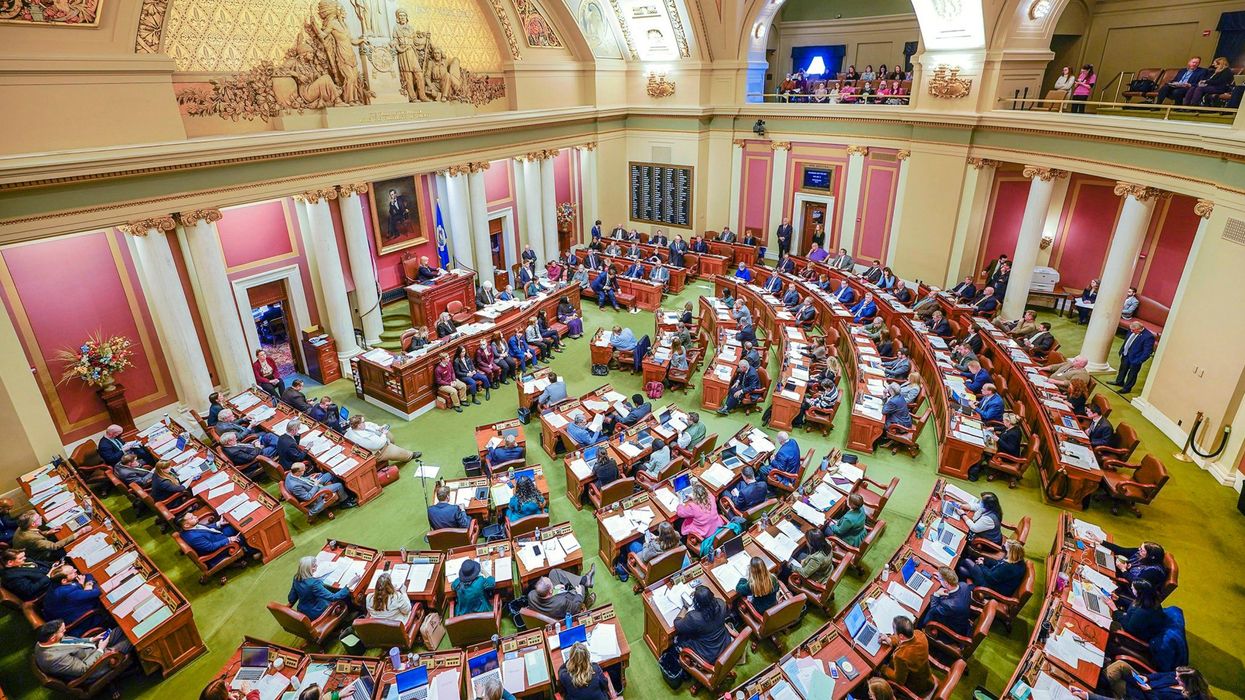If approved by the state Senate—in which the Minnesota Democratic-Farmer-Labor Party (DFL), the state's Democratic affiliate, holds a single-seat advantage—and signed into law by DFL Gov. Tim Walz, a former high school teacher, the policy will cost the government around $387 million during fiscal year 2024-25, according to estimates.
"We're feeding the kids," tweeted Rep. Sydney Jordan (DFL-60A), the bill's lead author, after the House vote.
Rep. Mary Frances Clardy (DFL-53A), another author of the bill, said that "as a teacher of 27 years, I've seen the impact hunger has on our students and their ability to concentrate and learn in the classroom. We have the resources to step up and deliver the food security families need."
However, DFL leaders say the program will save Minnesota families between $800 and $1,000 on annual food costs.
According to a fact sheet in support of the bill, 1 in 6 Minnesota children report not having enough to eat; however, a quarter of food-insecure kids come from households that can't get government food support because their families earn too much to qualify.
"When school meals are provided at no cost to all students, these hungry kids no longer fall through the cracks," the publication said. "They consistently get nutritious food that sustains their energy and focus in the classroom."
Jordan said that "in a state with an agricultural tradition as rich as ours, it is particularly unacceptable that any child go hungry."
"We know hunger is something too many students bring with them to their classrooms," she added. "And we know the current status quo is letting Minnesota school children go hungry."
Republicans, meanwhile, slammed the bill as an example of "reckless spending."
"Paying for lunches for every student, kids that can afford it, families that can afford this, that doesn't make sense," said Rep. Peggy Bennett (R-23A), who offered an amendment to the bill that would expand current eligibility for free school meals, with income limits.
Jordan dismissed the Republicans' argument, saying "we give every kid in our school a desk. There are lots of kids out there that can afford to buy a desk, but they get a desk because they go to school."
Advocates of universal school meals across the country hailed the Minnesota House vote on the bill. U.S. Rep. Ilhan Omar (D-Minn.)—who helped negotiate legislation allowing schools to temporarily drop regulatory burdens such as income-based eligibility requirements in order to deliver free meals to as many students as possible — tweeted that she is "incredibly proud of our state for leading the way to ensure no child goes hungry and receives the nutrition they need to succeed."
Chef and television personality Andrew Zimmern said on Twitter that he is "so proud today to be a Minnesotan."
"Prioritizing meals for kids should be job one and we can figure out the compensatory issues tomorrow," he added. "No child should be hungry. Ever. This is a big step towards that."
According to the National Conference of State Legislatures, 20 states have considered or passed legislation to establish universal free school meals, with California, Colorado, Maine, and Vermont being the first ones to enact the policy.

